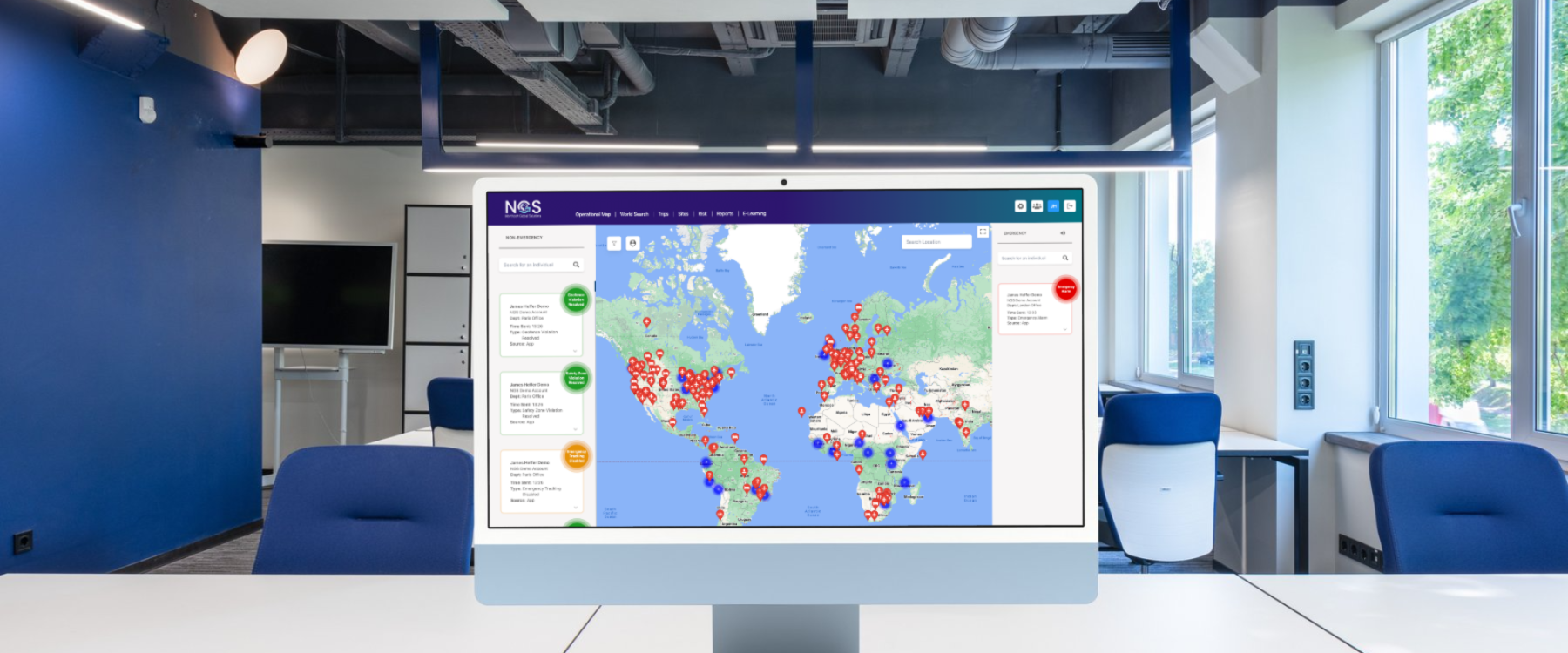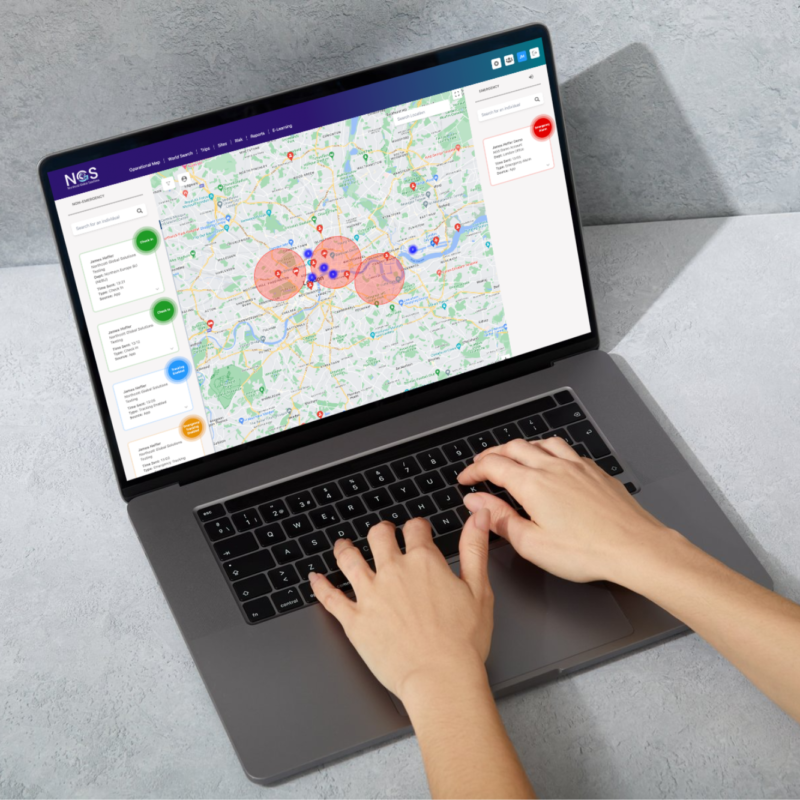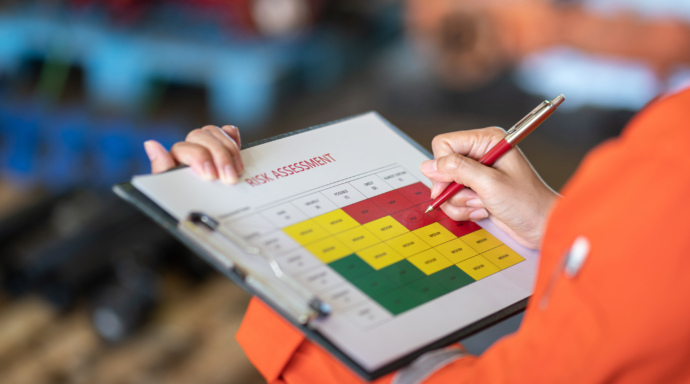In today’s volatile environment, having robust crisis management solutions is vital for any business. This guide delves into essential strategies and tools to help you mitigate risks, respond effectively to crises, and ensure a swift recovery. Whether you’re in the research phase or ready to implement a solution, this article provides actionable insights for informed decision-making.

In today’s rapidly changing world, businesses are facing an increasing array of risks. From natural disasters and cyberattacks to political instability and global pandemics, the potential for disruption is higher than ever. This elevated risk landscape makes crisis management solutions not just a strategic advantage, but a necessity for modern businesses.
Recent events highlight how critical these solutions are. For example, the COVID-19 pandemic exposed vulnerabilities in supply chains, forcing companies to adapt quickly or suffer severe consequences. Similarly, data breaches have shown how a lack of preparedness can lead to financial losses and damaged reputations. By having robust crisis management solutions in place, businesses can respond swiftly and effectively, minimising the impact of these unpredictable events.
Failing to implement effective crisis management solutions can result in significant financial, reputational, and operational damages. The financial impact alone can be devastating, with costs ranging from lost revenue due to business interruptions to the expenses associated with legal battles and fines.
Reputation is another critical factor. In today’s digital age, news spreads quickly, and any misstep during a crisis can lead to long-lasting damage to a brand’s image. Trust, once lost, is hard to regain, and this can have long-term effects on customer loyalty and business continuity.
Moreover, inadequate crisis management can disrupt operations, leading to inefficiencies and lost productivity. These operational challenges can compound the crisis, making recovery more difficult and time-consuming.
In conclusion, investing in comprehensive crisis management solutions is essential for safeguarding your business against the myriad risks that exist today. By doing so, you ensure not only the survival of your business but also its ability to thrive in a world where change is the only constant.

In the midst of a crisis, time is your most valuable asset. Access to real-time data is crucial for making informed decisions that can prevent a situation from escalating. With the right crisis management solutions, you gain the ability to monitor events as they unfold, receiving instant alerts that allow you to act swiftly. These alerts are designed to pre-emptively manage emerging threats, giving you the advantage of early intervention. For instance, if a cyberattack is detected, immediate alerts can help your team mitigate the impact before it spirals out of control, safeguarding your operations and reputation.

Seamless communication is the backbone of effective crisis management. During a crisis, every second counts, and any delay in communication can lead to significant consequences. Integrated communication tools within crisis management solutions ensure that all team members and stakeholders are connected in real-time. This enables instant collaboration, whether you’re coordinating an evacuation, managing a supply chain disruption, or responding to a public relations incident. The ability to communicate swiftly and effectively can mean the difference between a controlled situation and a crisis spiralling out of control.

No two crises are the same, which is why customisable response plans are essential. The ability to adapt your crisis management strategy to the specific circumstances of each incident is crucial for an effective response. Customisation allows businesses across different industries to tailor their plans to meet their unique needs. For example, a healthcare facility might focus on patient safety during a crisis, while a financial institution might prioritise data security. By having a flexible, adaptable plan, your business can respond to any crisis with a strategy that’s both effective and relevant to your specific industry.

In summary, real-time alerts, integrated communication tools, and customisable response plans are the cornerstones of any effective crisis management solution. They equip your business with the tools necessary to navigate crises with confidence and resilience.

Selecting the right crisis management solution starts with a thorough assessment of your specific business risks and requirements. Every industry faces unique challenges, and it’s essential to identify the areas where your organisation is most vulnerable. Start by conducting a risk assessment that highlights potential threats, whether they’re related to cybersecurity, natural disasters, or operational disruptions.
Once you have a clear understanding of your risks, prioritise the features you need in a crisis management solution. For instance, a tech company might prioritise cybersecurity measures and real-time data analytics, while a retail business might focus on supply chain resilience and customer communication. By aligning your needs with the features offered by various solutions, you ensure that you’re investing in a tool that effectively supports your specific operational requirements.
With your business needs clearly defined, the next step is to compare the top crisis management solutions available on the market. When evaluating platforms, consider both the strengths and limitations of each option. For example, some solutions might excel in real-time monitoring but offer limited customisation options, while others might provide robust communication tools but lack in scalability.
Look at the pros and cons of each platform in relation to your prioritised features. Consider factors such as ease of use, integration with existing systems, customer support, and cost. By weighing these aspects, you can make an informed decision that balances functionality with practicality, ensuring you select a solution that not only meets your current needs but can also scale with your business as it grows.
In summary, the key to choosing the right crisis management solution lies in understanding your business’s unique risks and carefully comparing the leading platforms to find the best fit. This approach ensures that you’re not just purchasing software, but investing in a comprehensive tool that enhances your resilience and readiness in the face of potential crises.


The effectiveness of any crisis management solution hinges on the preparedness of your team. Comprehensive training ensures that everyone knows how to use the tools effectively under pressure. Begin with detailed onboarding sessions that not only cover the software’s functionalities but also include scenario-based drills. These drills simulate real-world crises, helping your team build confidence and competence.
Ongoing education is equally important. Regular refresher courses and periodic drills keep your team’s skills sharp and aligned with any updates to the software. This continuous training approach ensures that when a crisis hits, your team can act quickly and effectively.

Crisis management is not static; it requires regular updates to address evolving risks. As your business environment changes, so too should your crisis plans. Set a schedule for regular reviews—quarterly is ideal. During these reviews, assess how current strategies hold up against new threats, such as emerging technologies or regulatory changes.
Involve key stakeholders in these updates to ensure a comprehensive approach. This not only strengthens the plans but also ensures that everyone is invested in the outcome. Regular updates keep your crisis management strategy relevant and robust, ensuring you’re always ready to respond effectively.
Artificial Intelligence (AI) and automation are rapidly transforming crisis management solutions, bringing unprecedented efficiency and precision to the field. AI-powered tools can analyse vast amounts of data in real-time, identifying patterns and potential threats faster than human analysts ever could. This allows businesses to anticipate crises before they escalate, enabling pre-emptive action. For example, AI-driven systems can predict natural disasters, monitor cybersecurity threats, and even assess public sentiment during a crisis, providing insights that are crucial for effective decision-making.
Looking ahead, we can expect AI and automation to become even more sophisticated. Future developments may include AI systems capable of fully autonomous decision-making during crises, further reducing response times and human error. As these technologies advance, they will continue to reshape how organisations manage and mitigate risks.
As the global landscape evolves, so too do the threats that businesses face. Emerging risks such as cyber warfare, climate change, and global pandemics are reshaping the crisis management landscape. Modern solutions must evolve to address these challenges, incorporating new technologies and strategies to stay ahead of potential crises.
Businesses must remain agile, regularly updating their crisis management strategies to reflect these emerging threats. By staying informed about the latest developments in crisis management technology and preparing for new risks, organisations can ensure they are equipped to navigate an increasingly complex and unpredictable world.

Selecting and implementing the right crisis management solutions is essential for safeguarding your business against today’s diverse and evolving threats. With the right tools in place—such as AI-driven monitoring, real-time communication, and customisable response plans—you can ensure your organisation is prepared to navigate any crisis effectively. Now is the time to take action. By investing in robust crisis management solutions, you not only protect your business but also provide peace of mind, knowing you’re ready for whatever the future holds.
Take the next step in securing your business and explore the best crisis management solutions today.
Ready to secure your business with top-tier crisis management solutions? Don’t wait until a crisis hits—take proactive steps now. Contact us today for a tailored consultation or to schedule a demo. Our experts will help you implement the right strategies and tools to protect your organisation and ensure business continuity.
Let us guide you through every step of the process, from selecting the best solution to seamless implementation. Your business’s security is our priority—reach out to us and fortify your defences now.